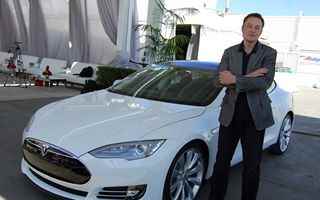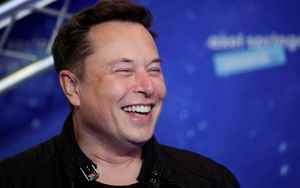(Finance) – The board of Twitter has unanimously adopted a “shareholder rights plan” to reduce the possibility that an entity could acquire control by accumulating shares on the open market without paying shareholders a bonus and without giving the board of directors time for an appropriate evaluation. It is a so-called “poison pill“to shield itself from hostile operations and, in this case, it is a defensive move against Elon Musk. The plan is triggered if an entity, person or group acquires 15% or more of the outstanding shares in an unapproved transaction from the board. Poison pill is a defense strategy that gives existing shareholders the right to buy additional shares at a discounted price, effectively diluting the holding of a hostile shareholder.
The offer of Elon Musk from 43 billion dollars to acquire Twitterwith the intention of making social newtork the “platform for free speech around the world”, he left perplexed investors and analysts. The doubts concern not only the feasibility of the operation, but also the attractiveness of Twitter under the control of the founder of Tesla. Musk has indeed launched the non-binding offer explaining that “free speech is a social imperative for a functioning democracy”, but the transformation of Twitter into a place with fewer rules could even be detrimental to its economic performance. Advertising revenue amounted to nearly 90% of its $ 5.1 billion in revenue in 2021 and a Website with little content moderation is a concern for advertiserswho don’t want to compare their products with controversial posts.
The lack of clarity and the precedent
While Musk is the richest man in the world, completing a totalitarian takeover bid to remove Twitter shares from Wall Street is still not easy. In the SEC filing he announced the offer, he said he had Morgan Stanley as his financial advisor, but he did not mention any other lenders or companies that could help him with the operation. Despite his record fortune, Musk is indeed gifted with little liquidity (most of his wealth is Tesla stock) and therefore needs the support of large investment banks for the Twitter delisting.

The entrepreneur himself acknowledged of “not be sure” that you are actually able to buy Twitter. At Thursday’s TED2022 conference, when asked whether there is a “Plan B” in case the current proposal is rejected, Musk replied, “There is,” but refused to elaborate further. When asked if he had the necessary funding, Musk said he had “sufficient resources“.
Such a statement is not enough to dispel any doubt because in August 2018 Musk had surprised investors with a series of tweets, saying that he was considering the possibility of deleting Tesla with an offer of 420 dollars. Again he said he had insured the necessary funding. The offer then never went through and those claims created problems with the Securities and Exchange Commission.
The cold reception of Wall Street
Musk’s lack of clarity did not warm the title on Thursday (the one in which the entrepreneur unveiled the offer), with shares that closed down by 1.68% to 45.08 dollars, and Wall Street. “While we agree with Musk’s assessment that Twitter is an under-monetized platform, we expect the board and key shareholders to resist the offer due to philosophical differences, “Mizuho Securities analysts wrote. A major concern the board of directors may have, analysts said, is” the limited time Musk has to focus on Twitter as he is CEO of various technology companies, including Tesla, SpaceX and The Boring Company. ”
According to New Constructs analysts, the offer is a “Musk’s desperate attempt to get attention“and not an honest effort to add value.” He offers to buy Twitter just because Twitter is where Musk is most popular, they wrote. Elon Musk brings no operational value to Twitter shareholders, other than his status as a rock star, which is not enough to transform Twitter in the long run. “Meanwhile, Prince Alwaleed bin Talal of Saudi Arabia (who has over 4% of Twitter) has already turned down Elon Musk’s offer, stating that the agreement does not “come close to intrinsic value” of the social media platform.
